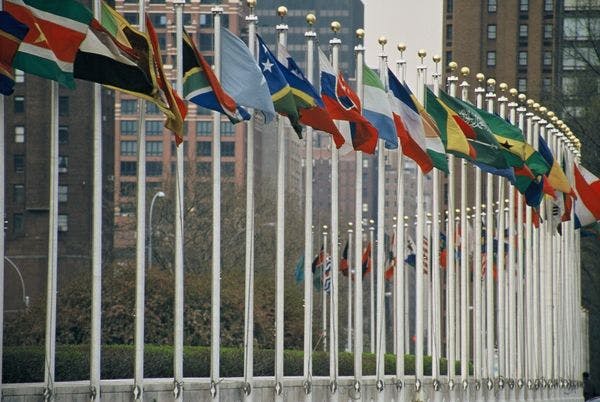A global cold war on drugs
From April 19–21, global leaders will meet for the first time in 18 years to debate global drug policy at the U.N. General Assembly Special Session on the World Drug Problem in New York. As soon as this week, the 59th session of the Commission on Narcotic Drugs will have the opportunity to decide whether the U.N. session will truly be “special” in achieving tangible results – or not.
If it is special in bringing strong outputs based on reality, the global regime will incorporate human rights and public health into current drug policies. Weak and blurred outputs would mean that the same regime has proved unable to adapt itself to the changing world and is doomed to collapse.
The special session on drugs is gathering at the request of three Latin American countries that are suffering from the war on drugs: In Mexico alone, the number of homicides related to the war on drugs exceeds the number of casualties of the wars in Syria, Iraq and Afghanistan combined. And yet, all around the world, we see results of the dysfunctional drug control regime: “Illegal drugs” were never as available or cheap or used as much as they are today.
The war on drugs is not only a problem for developing countries. To rely on tough prohibition is far too expensive even for the wealthiest nations. As President Obama recently noted, the war on drugs has been “very unproductive.” Indeed, it is causing even more crime than it seeks to prevent and diverts limited law enforcement resources from urgent issues, no matter whether the country is wealthy or not. Looking back, we can see our current situation is promising: While President Nixon declared a “war on drugs” in 1969, and President Reagan further expanded drug control measures outside the US, the current U.S. commander-in-chief clearly understands that this war should have ended long ago. Now we need to see that this rhetoric is followed by energetic action.
So far, we have seen minimal amounts of progressive language in the working versions of the output document to be debated and adopted at the U.N. special session on drugs. Interestingly, those countries experimenting most intensively with different drug control regimes are silent on the conflict between their progress and the current structure and interpretations of the U.N. conventions on drugs.
This applies, first of all, to the U.S., with four of its states and even its capital city legalizing recreational marijuana – the most widespread illegal drug – and with another four to nine states expected to do so in 2016. Make no mistake: The global drug policy is the responsibility of the whole global community. However, the U.S. is the only superpower to have invented, promoted and globally exported the war on drugs.
Click here to read the full article.
Keep up-to-date with drug policy developments by subscribing to the IDPC Monthly Alert.
Thumbnail: Wikimedia Commons
